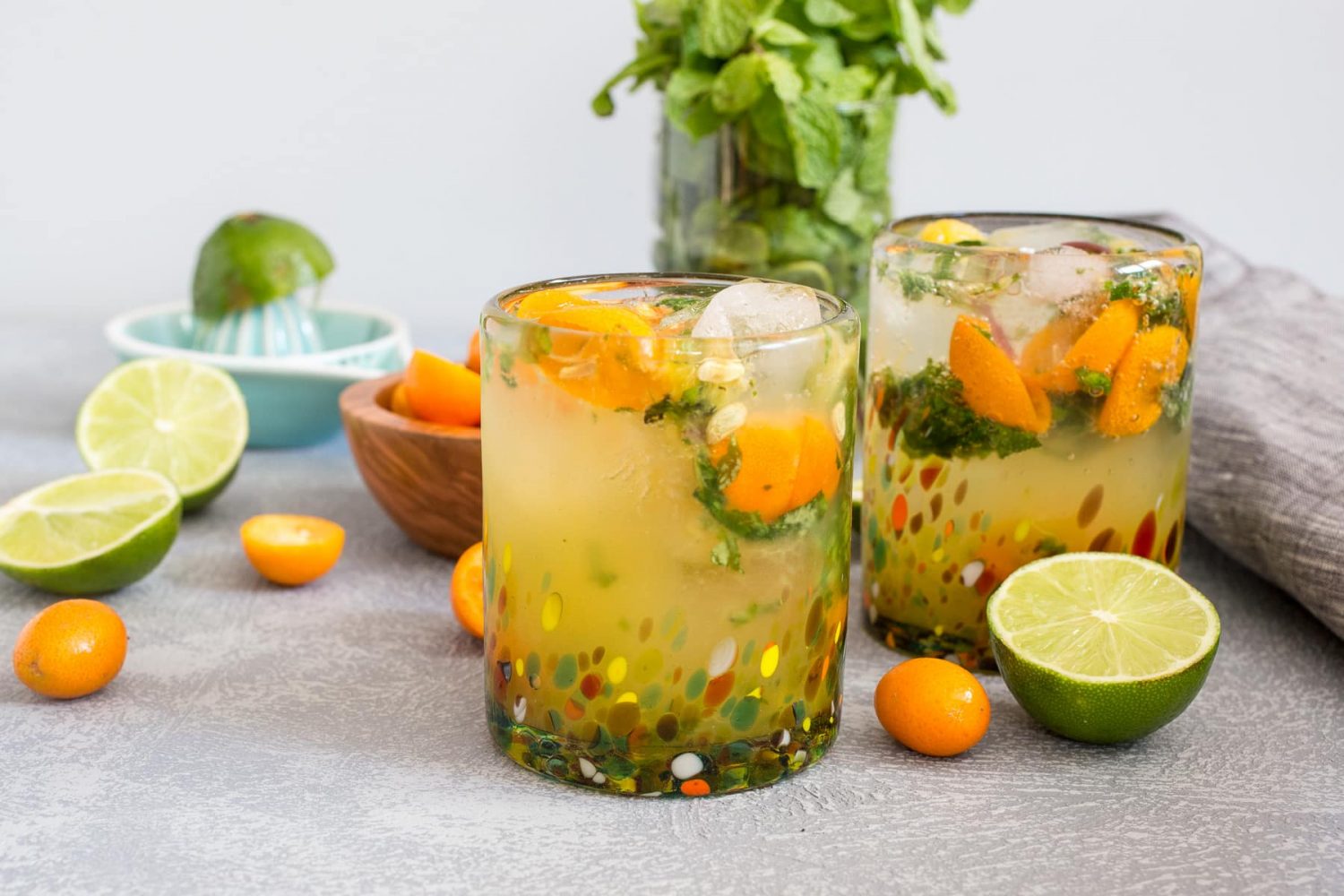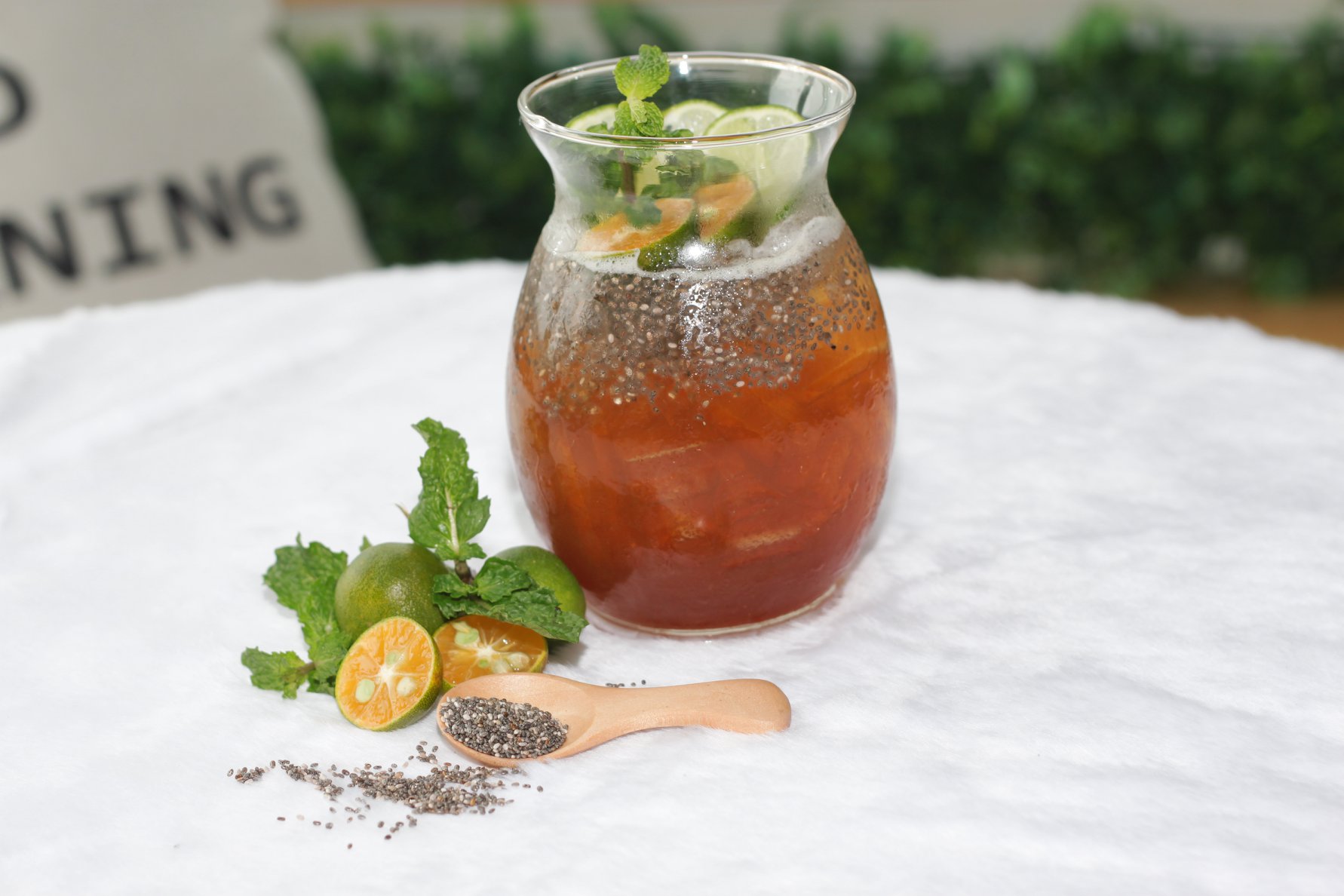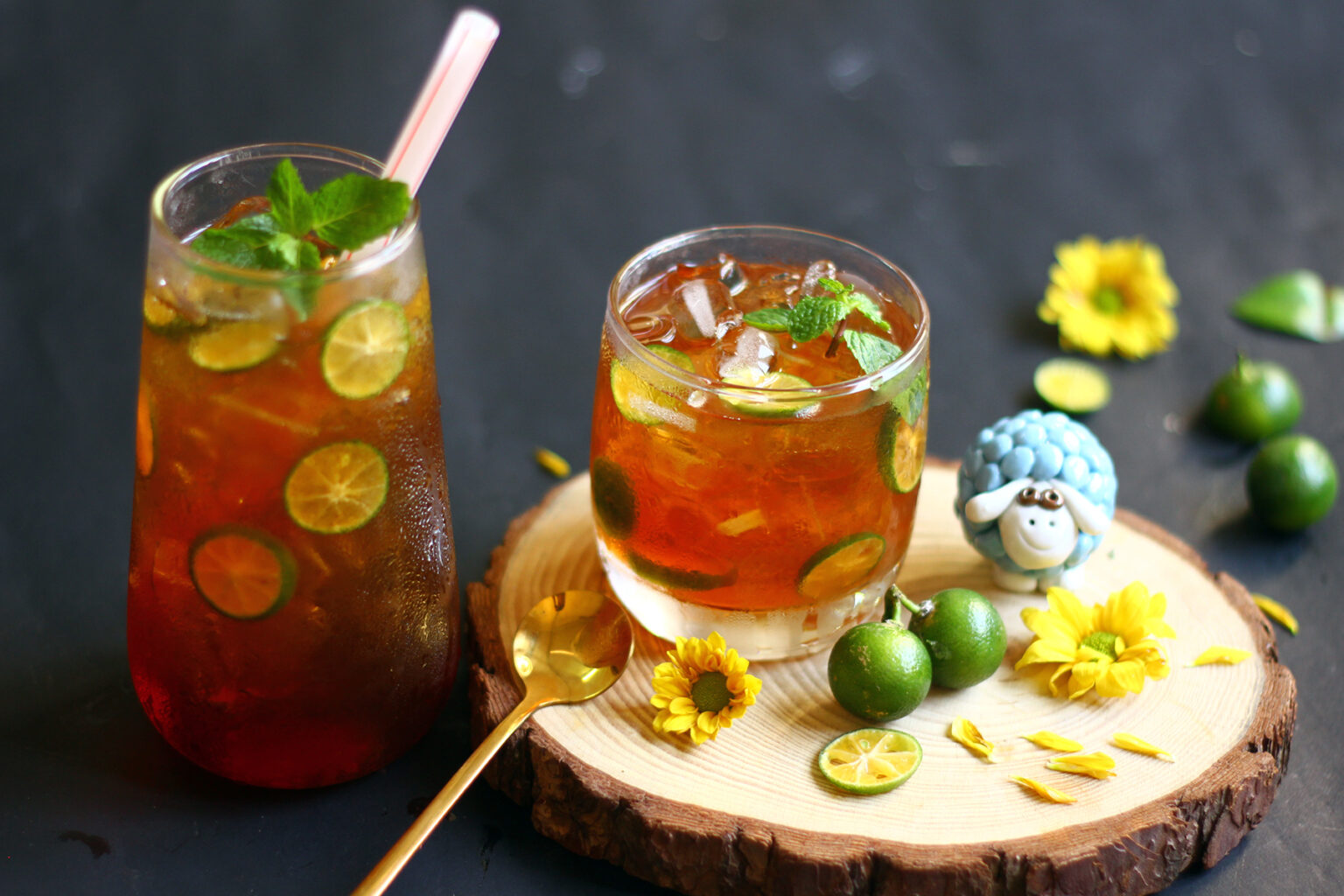The use of kumquat juice in Vietnamese foods and drinks delivers distinctive flavors that contribute to a diverse culinary culture. This distinctive fruit promises to offer a delightful experience.
Kumquat juice is widely used in Vietnamese beverages and cuisines. This flavorful fruit adds an extra layer of tastiness that contributes to the food’s deliciousness. Drinks made from kumquat are famous as liquid refreshments during sunny days. It is highly recommended for tourists to try kumquat drinks during their Vietnam travel experience.
1. About kumquat juice and its benefits for your health

Kumquat juice is commonly used to add a sour taste to foods and beverages. Drinks brewed from kumquat are famous among Vietnamese citizens, especially during hot summer days. In addition to being a top-choice refreshment, kumquat drinks also provide health benefits.
Your body will be supplemented with vitamin C and other beneficial nutrients that aid in strengthening the immune system when you consume this citrus. Drinking beverages made from kumquat juice can also help in controlling cholesterol levels, which reduces the probability of diabetes, metabolic syndrome, and other illnesses.
Kumquat provides a substantial amount of calcium and vitamin C that participate in forming and maintaining healthy teeth and bones, and vitamin A, which is highly beneficial in improving eye health. An amount of nitric acid existing in kumquat also contributes to enhancing the respiratory system.
2. Which Vietnamese drinks incorporate kumquat juice as an ingredient?
2.1. Kumquat juice with salt and sugar

A kumquat juice recipe with salt and sugar is a tasty and effortless way of making a refreshing beverage suitable for sunny days in the tropical region. This simple yet flavorful drink only requires a combination of kumquat, salt, sugar, cold water, and ice.
To make this drink, mix the juice from about 3 to 4 kumquats with around 100 milliliters of water and an amount of sugar based on personal taste. A pinch of salt can also be added to balance the sweetness and aid in reducing the tartness of the kumquats.
Lastly, put some kumquat slices into the glass to garnish. Decorating with some mint leaves is also recommended for extra visual appeal.
2.2. Kumquat tea with salted dried plum

The kumquat tea combined with salted dried plum is an innovative, popular drink among younger generations in Vietnam, not only for its delicious and refreshing flavor but also for its uses in purifying the body and improving health.
This variation of kumquat tea is made by using a blender to mix kumquat juice, salted dried plum, sugar, and, optionally, some basil. The blended mixture, with some added ice, will serve as a delightful refreshment on scorching days.
2.3. Kumquat tea with honey

While sugar is a common addition for sweetness in kumquat teas, honey can also be used as a replacement, especially if you are looking for a healthier substitute. Honey offers more health benefits compared to sugar while still delivering a delightful taste.
This drink involves brewing green tea or black tea, then adding kumquat juice for a citrusy mixture. Afterwards, pour in some honey according to personal preference for a touch of sweetness and fragrance. If you want to further reduce the sourness, a pinch of salt is all you need.
2.4. Kumquat tea with chia seed

Chia seed is a common ingredient in many Vietnamese beverages. Being one of the most nutritious seeds, chia seeds offer many health benefits as they contain a lot of fiber, antioxidants, and omega 3. For that reason, kumquat tea with chia seed is a recommendation for anyone who is exploring various Vietnamese drinks.
This kumquat tea is made using green tea or black tea mixed with kumquat juice and sugar. Chia seed is then added to the tea and left for about 5 to 10 minutes for the seed to expand. After adding some ice, the tea is ready to be enjoyed.
2.5. Kumquat juice with coconut

Kumquat juice with coconut is a famous drink in Sai Gon, combining the mild sweetness of coconut with the distinct taste of kumquat. The ingredients required for this drink only consist of fresh coconuts, kumquats, and sugar for additional sweetness.
The first step to preparing this drink is mixing the kumquat juice with some sugar, then adding shredded kumquat skin. In a pot, boil the mixture on low heat, adding sugar and a tiny amount of salt to taste. After the mixture has become syrupy, it can then be added to coconut water to create an appetizing beverage. Don’t forget to include strands of coconut flesh for extra delightful textures.
Kumquat juice with coconut is ideally enjoyed cold. It will rehydrate and freshen up your body, as well as give you an energy boost during the summer heat.
3. Other uses of kumquat juice in Vietnam
Along with its usage in brewing delicious beverages for hot summer days, kumquat is a famous addition to many dishes in Vietnamese food culture. The juice of kumquat adds a level of tanginess to the taste, which enhances the flavor of the food.

A commonly known use of kumquat in Vietnamese cuisine is incorporating it into bun dau mam tom, more specifically in the fermented shrimp paste. This unique savory dish is entirely different from the kumquat drinks mentioned above, showcasing the versatility of kumquat in Vietnamese cuisine as well as the creativity of local people. The addition of kumquat juice to the shrimp paste gives an extra layer of flavor to the distinct pungent taste and smell of the dipping sauce, which suits extremely well with all the toppings.
Kumquat juice is also great for seasoning, providing sourness for an irresistible and mouth-watering taste. A famous Vietnamese food that benefits from the kumquat’s flavor and aroma is chan ga sa tac, which is chicken feet soaked in lemongrass and kumquat marinade. The chicken feet, after being boiled and cooled, are marinated in lemongrass and kumquat sauce for a few hours to a day, which helps them absorb all the spices for a flavorful dish.
The use of kumquat juice in Vietnamese foods and drinks offers delightful experiences for those who seek to enjoy a diverse culinary culture. Its delicious taste and nutritious benefits make this fruit a favored addition to many Vietnamese people’s cuisine for an extra layer of taste. Be sure to add kumquat drinks to your list of must-tries before traveling to Vietnam

